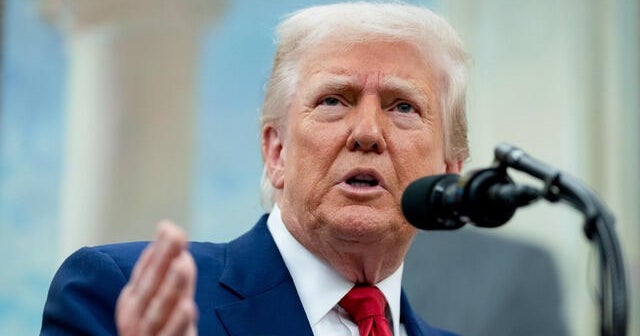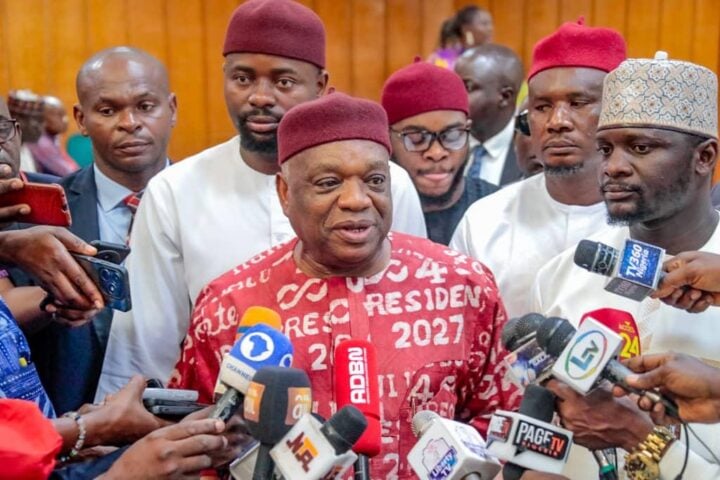US Courts Block Trump Administration's Tariffs, Causing Market Reactions

A three-judge panel at the US Court of International Trade in Manhattan delivered a significant blow to President Donald Trump's economic agenda on Wednesday, ruling to block some of his most sweeping global tariffs. The court determined that Trump overstepped his authority by imposing these tariffs, including the "Liberation Day" tariffs announced on April 2, levies targeting China, Mexico, and Canada to combat fentanyl trafficking, and universal 10% tariffs on most goods. The ruling stated these actions, taken under the International Emergency Economic Powers Act (IEEPA), were unlawful.
The court's decision found that the IEEPA does not grant the president the authority to implement such broad tariffs or to declare a national economic emergency for these purposes. "IEEPA does not authorize any of the worldwide, retaliatory, or trafficking tariff orders," the panel stated, adding that these orders "exceed any authority granted to the President by IEEPA to regulate importation by means of tariffs." Consequently, the court ordered a permanent injunction, halting Trump’s 30% tariffs on China, 25% tariffs on certain goods from Mexico and Canada, and the 10% universal tariffs. However, the ruling does not affect the 25% tariffs on autos, auto parts, steel, or aluminum, which were imposed under Section 232 of the Trade Expansion Act, a different legal authority.
The legal challenge was initiated by the libertarian legal advocacy group Liberty Justice Center, representing VOS Selections and four other small businesses who claimed severe harm from the tariffs. Additionally, twelve Democratic states filed a similar lawsuit. Plaintiffs argued that IEEPA does not permit the president to enact tariffs and that doing so would be an unconstitutional delegation of Congress's legislative power. The court concurred, emphasizing that IEEPA's powers are limited and must address specific, declared unusual and extraordinary threats.
The White House responded swiftly, announcing an immediate appeal of the decision. White House spokesperson Harrison Fields had previously asserted that trade deficits constitute a "national emergency." Following the ruling, Deputy Chief of Staff Stephen Miller described the decision on social media as a "judicial coup," while White House spokesman Kush Desai stated, "It is not for unelected judges to decide how to properly address a national emergency. President Trump pledged to put America First, and the administration is committed to using every lever of executive power to address this crisis and restore American greatness." The Department of Justice had argued that the tariffs were a political question outside the judiciary's purview.
Financial markets reacted positively to the news. Stock futures surged, with Dow futures rising nearly 500 points. The S&P 500 and Nasdaq futures also saw significant gains. Asian shares and Wall Street futures jumped, and the U.S. dollar strengthened against safe-haven currencies like the yen and Swiss franc. Oil prices also rose by about $1 a barrel, partly attributed to the tariff ruling and other market factors like potential new U.S. sanctions on Russian crude and an upcoming OPEC+ decision.
This ruling has profound implications for President Trump's core economic policy, which heavily relies on tariffs as a negotiating tool and revenue generator. Analysts suggest this could destabilize Trump's "three-legged stool" economic agenda, comprising tariffs, spending cuts, and tax cuts. Without the anticipated revenue from tariffs (estimated at around $150 billion per year), congressional support for large tax cuts could wane, potentially forcing the administration to consider reduced tax cuts or increased spending cuts. The decision also deepens the existing schism between the Trump administration and the judiciary and injects a new layer of uncertainty into global trade and for businesses. U.S. trading partners might stall ongoing negotiations, awaiting the outcome of the appeal process, which could reach the Supreme Court.
Despite the ruling, the future of U.S. trade policy remains uncertain. The administration may explore alternative pathways for imposing tariffs, such as wider use of Section 232. Analysts noted that while the ruling is a setback for the administration's tariff plans, it might not change the final outcome for most major U.S. trading partners, as the order does not block sectoral levies. For businesses, the ruling offers little immediate certainty, potentially even supercharging uncertainty due to the possibility of tariffs being eliminated or reinstated through other means. The legal battle is expected to continue, prolonging the ambiguity for consumers, companies, and the global economy.
The tariffs, dramatically announced on "Liberation Day," April 2, were part of Trump's effort to address perceived trade imbalances and assert global economic authority. The court's intervention, based on interpretation of law and the Constitution, underscores that the president does not have unchecked authority to impose such measures. The ruling now shifts the focus to Congress and the appellate courts, adding another significant twist to a presidency marked by bold economic strategies and frequent legal challenges.












